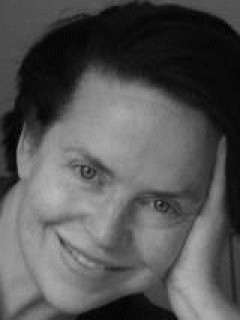I always wanted to work in business, and took soundings as to how I could get into general management. Marketing or finance was the answer.
What appealed?
Marketing, because of the link to to psychology — people are endlessly fascinating.
Who, or what, has been the biggest influence on your work to date?
My bosses, particularly my marketing director at Novartis. First, he was technically strong, generous with his time, and good at teaching. Secondly, he wanted to maximize your potential. So he would try and break you, and if you didn't break, you would get promoted. I found that inspirational.
Did you take that approach with you to subsequent jobs?
I hope so — coaching the next generation is what I love the most.
Juggling life/work balance: easier when in charge of an established brand or one on the up?
It's easier with an established brand unless it's been mismanaged. Turnaround or NPD, that's heavy lifting, not necessarily technically, but emotionally and physically.
Do researchers appreciate this heavy load?
Not always, because the heavy load is often internal. People in corporate life don't always like hanging over the side of the catamaran, which is why they put themselves on a super tanker. So if you find yourself in a turnaround or a launch, you can find yourself disproportionately accountable, having to do an awful lot of mission selling internally. Research agencies can help by giving unequivocal results. Sometimes, though, the poorer agencies hedge, when hedging in those situations is the worst thing you can do.
Is there a solution?
It requires rosters and relationships of long standing. The reality is it's not always the agencies" fault either, because if they're brought in on a price rather than a relationship they won't have the confidence since they'll want the next job.
The new challenge: Belazu. What difference has it made to your life?
Just getting back to food has been amazing because it has reignited my enthusiasm for the democratisation of great food. And then to get hold of these great pastes: I shove it in hummus or mayo/crème fraiche as a dip, it's great on meat, adds a punch to stews.
Last book/podcast/film that made an impact on you?
The Chimp Paradox by Dr Steven Peters. He states that we all have a "chimp" brain (driven by instant gratification, survival, territorial rights, etc) and a "human" brain (driven by logic, desired outcomes, etc) which are constantly interacting with varying degrees of success. Across my marketing career I have worked on two standout brands which were "overnight successes": Ovaltine's Options (a hot chocolate drink with only 40 calories a cup) and Nature Valley (better for you great tasting snack bar). His book made me realize that when the chimp (hot chocolate) and the human (40 calories) are both satisfied then both neural parties in the decision-making process are happy. The more you can credibly push the tension in the paradox, the stronger the outcome.
iPhone or BlackBerry for work/play?
BlackBerry every time: it's so much easier for email communication with the business world and has a better battery life.
What prevents research partners, in your experience, from identifying and testing brand truths?
Clients don't always put in the right brief, and the influence of advertising agency cannot always be ignored.
If marketing is at the crossroads, how confident are you that it will take the right route? Indeed, what is the right route?
I am not convinced we are going to get back on the right path in classical FMCG. Because it appears we are giving ever more in promotional discount and cutting back on innovation and above the line spend. It seems to me that the response of the FMCG players to supermarket pressure, which is what this is all about, has been to globalise rather than to de facto improve their marketing. In business terms I believe the right route is for the biggest companies to work co-operatively to create an online shopping portal direct to consumers. In marketing terms it's about getting back to basics — propositions that resonate, copy proven to work, and innovation proven to be incremental.
What bit of research has rocked you in your socks — and what difference did it make in the long term?
Learning about the power of recency in the early 1990s. It has saved millions over the years.
Crystal ball time?
Within 25 years supermarkets will look like old fashioned delis, and most of the heavy ambient goods will be brought online. The supermarkets will have lots more white goods and clothes going on, plus rafts of chilled fresh produce, wines and cheeses, which is what people genuinely want to engage in, but the rest will all go online. It's happening already but I see it exploding. The challenge for FMCG will be how to get trial and in my view that's going to require them to move into high street experiential outlets to overcome this.
Looking back, what do you think is your proudest moment to date?
I think that would be when I noticed my nephew looking at me very curiously as I was larking around at home with him. I asked him what the matter was and he then replied, in a very considered and serious way: "Aunty Debbie, you're young old."
What is the one thing that you would never leave home without?
I try never to leave home without a kiss. My philosophy Is that you should never let the sun set or rise on an argument. Life is short and never guaranteed.


